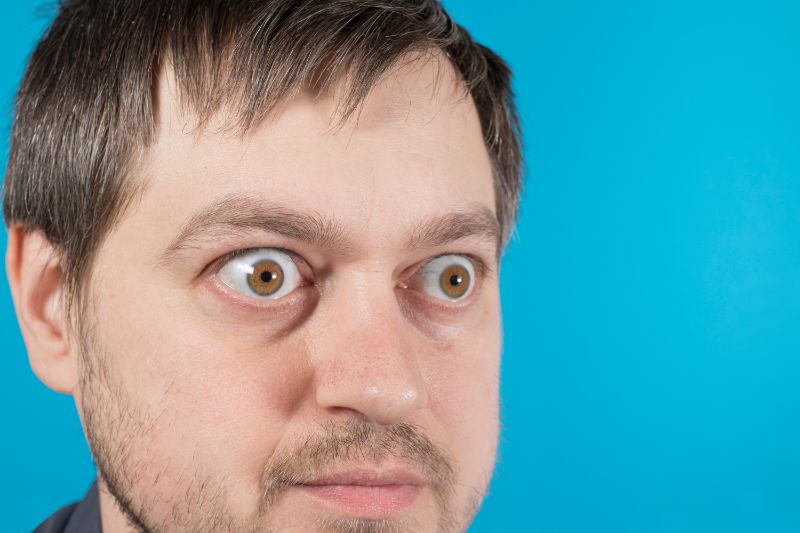
Graves and thyroid disease are autoimmune disorders that affect the thyroid gland and cause inflammation of the muscles and tissue around the eyes. This can lead to conditions such as bulging eyes, double vision, dry eyes, and eye pain.
Graves disease is an autoimmune disorder that affects the thyroid gland, causing an overproduction of thyroid hormone. Its symptoms include weight loss, anxiety, heat intolerance, sweating, and rapid heartbeat.
Two main types of thyroid diseases affect the thyroid gland:
To decompress the eye inflammation caused by these autoimmune diseases, your eye doctor may suggest undergoing oculoplastic surgery. This field of plastic surgery reconstructs the eyelids, eyebrows, tear ducts, and orbital cavities.
The most common symptoms of eye diseases caused by Graves' disease include:
Symptoms for eye diseases caused by Graves' and thyroid disease are usually misdiagnosed as allergy or conjunctivitis. Important signs that your eye condition may be due to an autoimmune disease include pain with eye movement and double vision.
Your physician might recommend visiting an eye doctor if you know you have Graves'' or thyroid problems. To examine your eyes for bulging and enlarged muscles, an eye specialist will perform a regular eye exam, which may include the following tests:
Treatment for swelling around the eye tissue caused by Graves' or thyroid disease will depend on the severity of the condition. Eye drops, avoiding irritants, and monitoring may be required for mild cases.
For severe cases, your eye doctor may suggest undergoing oculoplastic surgery. Oculoplasty is a field of plastic surgery that reconstructs the eyelids, eyebrows, tear ducts, and orbital cavity. Common oculoplastic surgeries include the following:
The recovery time and side effects after eye surgery depend on your unique health conditions and the specific surgical procedure required. The side effects that may appear after surgery are the following:
Most patients can return to regular activities within a few days after surgery. However, full recovery can take up to six weeks.
EyesNY offers treatment to help patients dealing with eye conditions caused by graves'' or thyroid disease. Our specialized team of ophthalmologists is ready to assess your needs and give you the high-quality vision care you deserve.
We work with cutting-edge technology to identify the root cause of your condition and create personalized treatment plans. Our caring staff is ready to welcome you and meet your ocular health and vision needs.
We offer comprehensive eye care services, including treatment for graves''/thyroid eye disease and other oculoplastic complications.
If you’d like a consultation or more information, contact us, request an appointment online, or visit our clinics. We have multiple locations around New York, including Malta, Clifton Park, Troy, Saratoga Springs, and Queensbury.
Malta
658 Malta Ave., Ste 101
Malta, NY 12020
Phone: (518) 580-0553
Saratoga Springs
414 Maple Ave Ste 200
Saratoga Springs, NY 12866
Phone: (518) 580-0553
Clifton Park
1712 U.S. 9
Clifton Park, NY 12065
Phone: (518) 580-0553
Queensbury
535 Bay Road
Queensbury, NY 12804
Phone: (518) 580-0553
Troy
2200 Burdett Street Ste 206
Troy, NY 12180
Phone: (518) 580-0553
